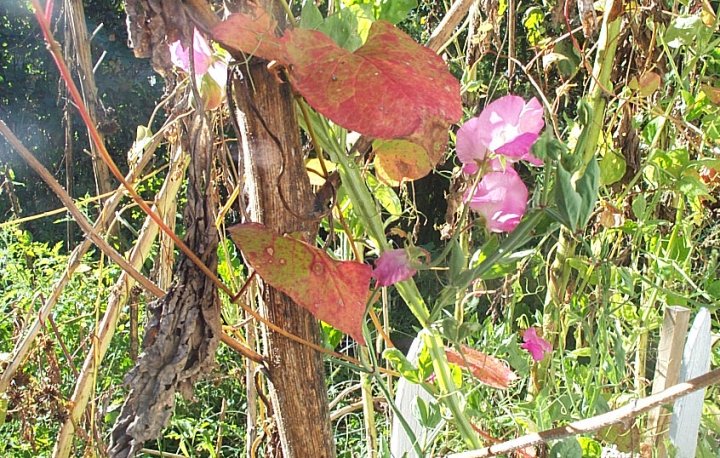
SONNETS, YOUNG MAN!
BY DANIEL ALARCON

|
Mr. Alarcon is traveling in South America. Below you'll find una nota he sent to people recently. His story collection, War by Candlelight, comes out soon. An archive of links to previous notes is below. More notes will appear here every other day for a while. * February 4, 2005 September 11, 1973 comes up again and again here in Chile, a date around
which people organize their lives, more than I had expected. I met a man
who blamed his 40 year old son's depression on the coup that resulted in
the death of Salvador Allende. A woman told me her father had a heart attack
in January of '74 and died from the stress. Hugo’s uncle, Alberto was 21
in 1973, and fled to Switzerland. He spent an entire life there, returned
only in the 1990s, and then only to visit. By coincidence he came again
while I was in Santiago, and we got to talking. I was interested in how
one maintains any sense of identity being so far away from home, he had
a novel approach. It turns out that Southern Chile was colonized by Swiss,
and so Alberto has spent a lot of time researching that history, in this
way uniting the two strands of his life: childhood in Chile, adulthood
in
In 1998, he was working as a reporter and was to be sent to cover the war in Bosnia. A routine physical showed he had cirrosis, and though he felt fine, given the way he drank, the diagnosis seemed entirely plausible to Alberto. He didn't seek a second opinion; instead he sat down to write a book. Six months later, he had 300 pages and a colleague of his was dead of acute liver failure. There had been a mixup at the clinic. The book that came out of all this included the history of the Dufey family in Chile, stories of bigamy and children banished to orphanages, incest and other kinds of scandalousness, to which Alberto added some details of his own life in exile: his drinking, his three wives, his affairs. He thought he’d be dead of course, and not have to deal with the fallout. He published the book anyway, and today many people in the family won’t talk to him. This happens, I guess, to writers. After Santiago I went to La Serena to see my homegirl Alejandra read at the International Book Fair. I think mine was just about the only international presence there. I was hanging out after the reading, and was approached by a small man with a nervous air about him. He asked if he could give me a book. I said sure. There was a poetry reading going on, so he spoke in this shrill whisper, and told me that free verse had ruined poetry and now anybody could call themselves a poet. "Do you hear that?" I tried to listen. The reading disgusted him. "Sonnets, young man! Sonnets! What is classic never goes out of style." I nodded. He introduced himself then as Enrique Iglesias, the most published
writer in Latin America.
93 books of essays
He was your typical fast-talking, mildly autistic paranoid delusional Spaniard. Totally humorless. No self-awareness. Everyone else at the Festival was avoiding him, but I had nothing to do, so I let him keep talking. "I think in meter," he said softly, in a voice that can only be described as harrowing. He went on and on. He started writing in 1998. He spent a day or two on each book. I asked where he was from. “Galicia, and I’ve written five novels in Gallego.” When he found out I was Peruvian, he said he’d written two books for Peru, and could he give them to me. Why not? He came by my hostal the next morning with two books: one called RESENTMENT, which is about a Peruvian who hates Spaniards because of the whole Conquest thing, and another called JULY 28, DAY OF PERU. Slim books, cheaply printed. He started his harangue again and because I was running late, I let him give me a ride to the radio station where Alejandra was being interviewed. He talked the whole way about how he’d been kicked out of all these workshops, fought with the mayor, the newspaper, how he should be on the panels at the Book Fair, his obsession with having the most number of books in the local library, etc. I was silent. When we arrived, he looked tired all of the sudden. “If your friend Alejandra wants to leave me a book, she can,” he said. It was the saddest thing. I thought he might cry. But the moment passed and then he was himself again. “If she doesn’t want to that’s fine,” Enrique said, “After all, I’ve published more books than she has.” * Check back Friday for a note that
Previous notes, from first to last: Buenos Aires, Montevideo, & Colonia [Forever after at http://eyeshot.net/alarconsonnets.html] |
|
B R A V E S O U L S R E C E I V E
|
Archive of Recent Activities - Advice for Submitters
Enhanced Navigational Coherency - Long-Ass List of Contributors
Super Lo-Tech Slideshow - Four Years Ago, Maybe - Three Years Ago Today
Two Years Ago Today - Last Year Today
*
MORE TO SEE DOWN HERE
pboz #5 is available for preorders!
boom #1 is available (and it's beautiful!)
david barringer's terminally curious
charles ullmann's strategies for modern living
incidents of egotourism in the temporary
world
(ten copies left)
submissions are being accepted and declined for:
the duck & herring co., seasonal publications by Jamie Allen